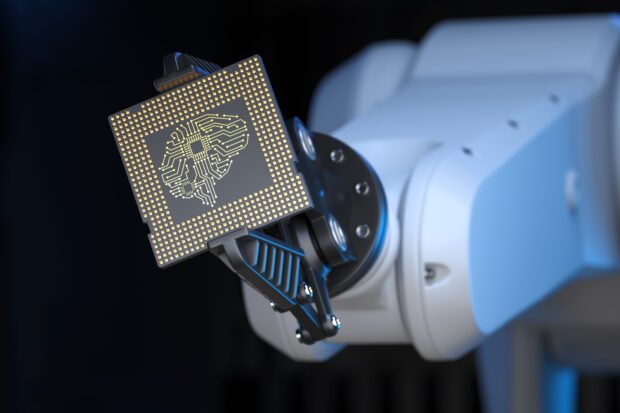
What the New AI Chip Export Regulations Do Not Entail
- Stop selling AI chips to abrasive nations such as China and Russia.
- Encourage the development of AI in nations that share America’s standards.
- Be a gatekeeper for global AI technological advancement.
A few key issues characterized the New Regulations.
Tier 1:
- It includes the U.S. and 18 allies, including Germany, Japan, South Korea and Taiwan.
- The chips will be available to Americans unmitigated.
Tier 2:
- Most countries around the world are included.
- The exports only allow computing power to be exported to one nation, and the top limit is set at around 50,000 GPUs between 2025 and 2027.
- Once companies meet U.S. security and human rights standards, they can apply to the group for validated end-user (VEU) status, allowing them to exceed the limits.
Tier 3:
- Adversarial nations covered included China, Macau, and countries under U.S. arms embargoes.
- It broadly bans the export of advanced chips to these countries.
What is the Validated End-User (VEU) status?
- They operate beyond their national caps for chip imports.
- Be able to access higher computing power limits.
- To meet U.S. security standards, build data centers in Tier 2 nations.
Economic Impact on Major Chipmakers
Nvidia’s Response
Other Industry Reactions
- Delay implementation to have a thorough industry consultation.
- The policy has to support global competitiveness.
Why Should These Rules Matter?
Maintaining AI Leadership
- Make sure that you have superior computing capabilities regardless of which nation you partner with.
- Support the alignment of American, not just global, development of AI with American security and ethical standards.
Addressing Security Concerns
These restrictions aim to prevent adversarial nations from:
- What are the military applications of those very same AI technologies?
- By linking intermediaries based in the Middle East and Southeast Asia.
Potential Problems and Criticisms
- Economic Risks: Blocking exports could damage U.S. chip makers and slow growth.
- Implementation Complexity: However, dealing with the multi-tier system will require tremendous resources for monitoring and enforcement.
- Industry Pushback: Companies argue that rushed policies are likely to yield unintended repercussions, such as diminished global business competitiveness.
What Comes Next for AI Chip Exports?
- How will the global AI ecosystem adjust to these changes?
- How much will U.S. allies back these measures?
- Can the regulations achieve a balance between economic and security interests?
Key Takeaways for Businesses
- Be kept up to date on the proposed rules.
- They assess whether potential VEU status is appropriate for them.
- Minimize risk by aligning with U.S. security and human rights standards.
Conclusion
About the author
A Complete Guide to Meeting Vrbo Host Requirements
Vrbo property owners succeed financially by leasing their vacation residences to tourists as they enjoy meeting their guests. The competitive Vrbo market demands property owners to satisfy every host requirement along with following local short-term rental rule regulations. The document includes every detail regarding Vrbo listings along with specific quick rental regulations for stated regions.Understanding Local Short-Term Rental RegulationsYou should check your vacation rental meets every local law requirement before initiating the listing process. Multiple geographical areas have set restrictions for short-term property rental hosting.Selected areas might establish reserved zones for short-term rental activities.Obtaining specific business licenses, short-term rental licenses, and operating permits remains one of your required steps.The taxation system in many locations obligates hosts to obtain transitory residence tax payments from guests, which hosts then need to transfer to local tax departments.Property owners within HOA boundaries should verify […]
Josef March 8, 2025
Introduction to the International Entrepreneur Rule
The International Entrepreneur Rule, created by the Department of Homeland Security (DHS), represents a revolutionary federal regulation. Through temporary parole, the United States attempts to attract international business entrepreneurs who demonstrate the potential to create innovative startups that will drive economic growth and build new employment. The rule took effect on July 17, 2017, to establish an entrance system for startup founders who want to work on their business growth within the U.S. This article explains the International Entrepreneur rule, its benefits, and criteria, as well as reports on current news related to this regulation. Purpose of the Rule IER exists to stimulate business creation, entrepreneurship, and innovation and produce employment opportunities in the United States. The U.S. Department of Homeland Security employs Section 212(d)(5) of the Immigration and Nationality Act (INA) to provide temporary startup operation opportunities in the […]
Josef March 1, 2025
The Decline of Boot Camps: Alternative Credentials: What It Means
The Decline of Boot Camps: Alternative Credentials: What It MeansCoding boot camps were once considered a near-transformative pathway to lucrative tech careers. How cool are they nowadays, given the fast-changing tech environment? We'll look at the rise and fall of these once-popular programs.The Golden Era of Boot CampsHowever, the coding boot camp entered the 2010s as an instant cheap alternative to the regular college degree. Why Boot Camps Thrived: Cost: The programs ranged from $5,000 to $20,000.Efficiency: They would graduate in months.Opportunity: Graduates get jobs as entry-level coders in tech companies.Criticism of inflated job placement claims and tall tales didn't stop the allure of these intensive programs from creating more than 100 boot camp providers in the marketplace by the end of the decade.Why Are Boot Camps Closing?Several factors have contributed to the waning popularity of coding boot camps:Market Saturation: Not […]
Josef January 14, 2025
The Impact Global Technology Facing Will Have On How Biden’s New AI Chip Export Limits Will Pan Out
In another step to level the playing field for global access to advanced technology, President Joe Biden's administration wants to impose additional export restrictions on advanced artificial intelligence (AI) chips. A few days before his term ends, this decision attempts to keep adversarial nations from accessing the latest cutting-edge technology while maintaining U.S. dominance in AI innovation. What the New AI Chip Export Regulations Do Not Entail The Biden administration wants to limit the spread of advanced semiconductor technology to maintain them in allied countries. The proposed regulations are designed to: Stop selling AI chips to abrasive nations such as China and Russia. Encourage the development of AI in nations that share America's standards. Be a gatekeeper for global AI technological advancement. According to sources, the restrictions are meant to balance security concerns with future economic growth and reflect America's […]
Josef January 9, 2025
Related
A Complete Guide to Meeting Vrbo Host Requirements
Vrbo property owners succeed financially by leasing their vacation residences to tourists as they enjoy meeting their guests. The competitive Vrbo market demands property owners to satisfy every host requirement along with following local short-term rental rule regulations. The document includes every detail regarding Vrbo listings along with specific quick rental regulations for stated regions.Understanding Local Short-Term Rental RegulationsYou should check your vacation rental meets every local law requirement before initiating the listing process. Multiple geographical areas have set restrictions for short-term property rental hosting.Selected areas might establish reserved zones for short-term rental activities.Obtaining specific business licenses, short-term rental licenses, and operating permits remains one of your required steps.The taxation system in many locations obligates hosts to obtain transitory residence tax payments from guests, which hosts then need to transfer to local tax departments.Property owners within HOA boundaries should verify […]
Josef March 8, 2025
Introduction to the International Entrepreneur Rule
The International Entrepreneur Rule, created by the Department of Homeland Security (DHS), represents a revolutionary federal regulation. Through temporary parole, the United States attempts to attract international business entrepreneurs who demonstrate the potential to create innovative startups that will drive economic growth and build new employment. The rule took effect on July 17, 2017, to establish an entrance system for startup founders who want to work on their business growth within the U.S. This article explains the International Entrepreneur rule, its benefits, and criteria, as well as reports on current news related to this regulation. Purpose of the Rule IER exists to stimulate business creation, entrepreneurship, and innovation and produce employment opportunities in the United States. The U.S. Department of Homeland Security employs Section 212(d)(5) of the Immigration and Nationality Act (INA) to provide temporary startup operation opportunities in the […]
Josef March 1, 2025















Be the first to leave a comment